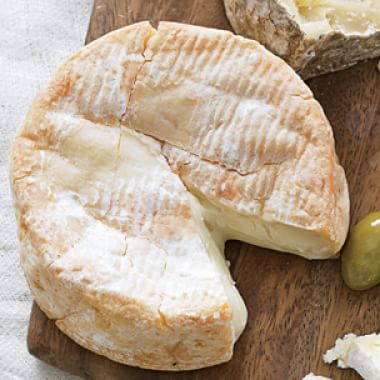
Boursault
A rich, nutty French cheese with a creamy texture, made from pasteurized or unpasteurized cow's milk. Most aficionados prefer the unpasteurized cheese, but it is rare outside of Europe.
Brie
A sublimely smooth, ivory cheese with an edible rind, made from cow's milk, pasteurized or unpasteurized (rare outside of Europe). Brie should be served only when ripe and so soft that it is almost-but not quite-runny. It is sold in flat rounds of various sizes.
Camembert
This cow's milk cheese, similar to Brie, has a yellow interior and edible rind. Camembert should be as soft as bread dough when ripe and ready to eat.
Limburger
A soft, slightly salty, full-flavored cow's milk product with a powerful aroma that dissuades some from trying this tasty cheese. The rind is washed in brine during ripening, which contributes to the development of the cheese's smell.
Pont l'Évêque
A full-flavored French cow's milk cheese similar to Brie and Camembert but with a stronger flavor. The cheese, which has a light brown crust and pale yellow interior, is packed in square wooden boxes.
Ricotta Salata
A mild, pure white, rindless sheep's milk cheese with a smooth texture and pleasantly sweet flavor. Ricotta salata is most readily associated with Sicily, Sardinia and the southern part of Italy. The cheese is aged for at least 3 months, although in Sicily it may be aged far longer, until firm and appropriate for grating. It is served in much the same way as feta cheese (rather than as fresh ricotta cheese) or used to top pasta.
Teleme
Resembling a tangy Brie and aged for about 3 weeks, this cheese of northern California is made from extra-rich milk.
Adapted from Williams-Sonoma Kitchen Companion: The A to Z Guide to Everyday Cooking, Equipment and Ingredients (Time-Life Books, 2000)







